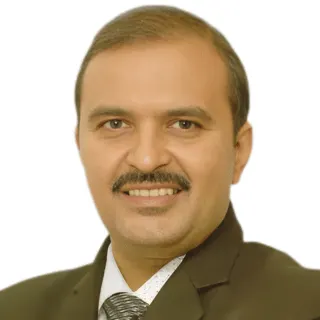Best Cardiologists in Artemis Hospital Gurgaon
 10 December,2025
Read More
10 December,2025
Read More
Starting From: USD 1500 - USD 3000
Hospitalization Days: 3 - 7 Days
Procedure Duration: 1 Hrs - 2 Hrs
Cholecystectomy is affordable in India. The cost of Cholecystectomy in India lies between USD 1500 - USD 3000. The exact procedure price depends on multiple factors such as the surgeon's experience, type of hospital, severity of the condition, patient's general condition,�etc.
Cholecystectomy is a surgical procedure aimed at removing the gallbladder. This organ is not essential for survival, and the body can adapt to the absence of the gallbladder by storing bile in the liver instead. The most common reason for cholecystectomy is gallstones, which are solid particles that form in the gallbladder due to an imbalance in the composition of bile. Gallstones can lead to various symptoms and complications, such as biliary colic, acute cholecystitis, pancreatitis, or bile duct blockage.
There are two primary methods for performing a cholecystectomy:
Cholecystectomy is indicated when gallstones or gallbladder-related conditions cause significant symptoms or complications. Common reasons for undergoing a cholecystectomy include:
The cholecystectomy procedure typically follows these steps:
Recovery following cholecystectomy varies depending on the surgical approach and the patient's overall health. Generally, recovery milestones include:
Cholecystectomy is generally considered safe, but like any surgical procedure, it carries some potential risks and complications. These may include:
Cholecystectomy is a common surgical procedure that effectively treats gallbladder-related conditions, primarily gallstones. While the removal of the gallbladder is generally well-tolerated, it is important to consider the potential risks, complications, and the digestive changes that can occur post-surgery. Patients should discuss the benefits and risks of cholecystectomy with their healthcare provider, and together they can make an informed decision regarding the appropriate treatment for gallbladder conditions.

Head of Department (HOD)
Gastroenterologist
Fortis Memorial Research Institute (FMRI), Gurgaon


Consultant
Gastroenterologist, Hepatologist
Manipal Hospital Formerly Columbia Asia, Palam Vihar, Gurgaon

Consultant
Gastroenterologist
Manipal Hospital Formerly Columbia Asia, Palam Vihar, Gurgaon

Senior Consultant
Surgical Gastroenterologist
Indraprastha Apollo Hospital, New Delhi

Consultant
Medical Gastroenterologist
Indraprastha Apollo Hospital, New Delhi
Doctor of Pharmacy
Dr. Deepanshu Siwach is a skilled clinical pharmacist with a Doctor of Pharmacy degree.?He has 4+?years of experience and has worked with thousands of patients. He has been associated with some of the top hospitals, such as Artemis Gurgaon.
Dr. Deepanshu Siwach is a skilled clinical pharmacist with a Doctor of Pharmacy degree.?He has 4+?years of experience and has worked with thousands of patients. He has been associated with some of the top hospitals, such as Artemis Gurgaon....
The Art of Effective Communication
 10 December,2025
Read More
10 December,2025
Read More
 09 December,2025
Read More
09 December,2025
Read More
 05 December,2025
Read More
05 December,2025
Read More
 04 December,2025
Read More
04 December,2025
Read More
 27 November,2025
Read More
27 November,2025
Read More
 25 November,2025
Read More
25 November,2025
Read More